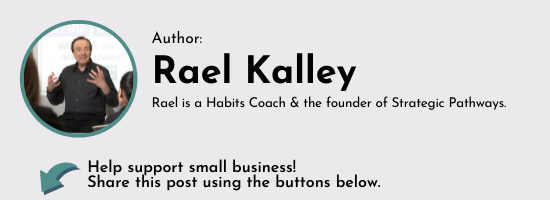How Long Does It (Really) Take To Form a New Habit?
There is a myth about habits that has been circulating for decades. It began, I believe, in the 1960s when Dr. Maxwell Maltz, a renowned plastic surgeon, published his book, Psycho Cybernetics.
Dr. Maltz noticed that it would take many of his patients around 21 days to accept, and get used to, their new look.
His observation, repeated many times over the ensuing decades, was modified to proclaim that it takes 21 days to form a new habit.
To this day there are countless numbers of people who believe this to be true.
It is nothing more than an oft-stated myth which begs the question, how long does it take to form a new habit?
And here is the true answer: it takes as long as it takes.
It Takes As Long As It Takes
We all know people who have quit smoking for more than 21 days – often for years – who for some inexplicable reason return to a habit they despised.
Similarly, we have witnessed friends and colleagues lose vast amounts of weight only to gain it back again.
And we are aware of people who suddenly completely change their approach to things certain things, only to revert back to their customary behaviours after a short while.
You see, a habit is only a habit until we replace it with a new one.
Another myth is that old habits die hard. They don’t; what old habits do is they hide themselves in the deep recesses of our very being, waiting for the next opportunity to victoriously re-emerge.
We have often discussed a truism that is seemingly irrefutable:
We always do what is most important in the moment.
This is true of all the choices we make and the new habits we embrace will remain in place only as long as the behaviours attributed to them are important to us.
The moment they lose their importance we will either go back to a prior behaviour or adopt, yet another, new set.
Pain is one of the most powerful catalysts to change, and change can only be sustainable if we stay loyal to the requisite new behaviours that change requires.
Early Success Can Derail Us
The irony in this is that one of the barriers to forming long-term habits is early success.
It is not uncommon for the early onset of new behaviour to lead to a sense of complacency. This sense of “I’ve got it” or “I’ll take it from here”, has caused many who’ve experienced early success in their endeavours to change and acquire new habits, to be lulled into a false sense of accomplishment causing them to very quickly revert to the very habits that had caused the results they so desperately wanted to change.
By the way, if you can relate to the above paragraph, and have repeatedly fallen prey to this false logic, may I suggest your first focus is to change the habit of turning early success into disappointment.
That habits control our lives is not up for debate and if we sincerely wish to substitute some of our troublesome habits for new ones that will dramatically alter our lives, we need to develop the habit of taking habit change seriously.
Now that is a worthwhile habit to strive for. If you need some help, I would be delighted to hear from you.
Let’s make a habit of meeting like this.


